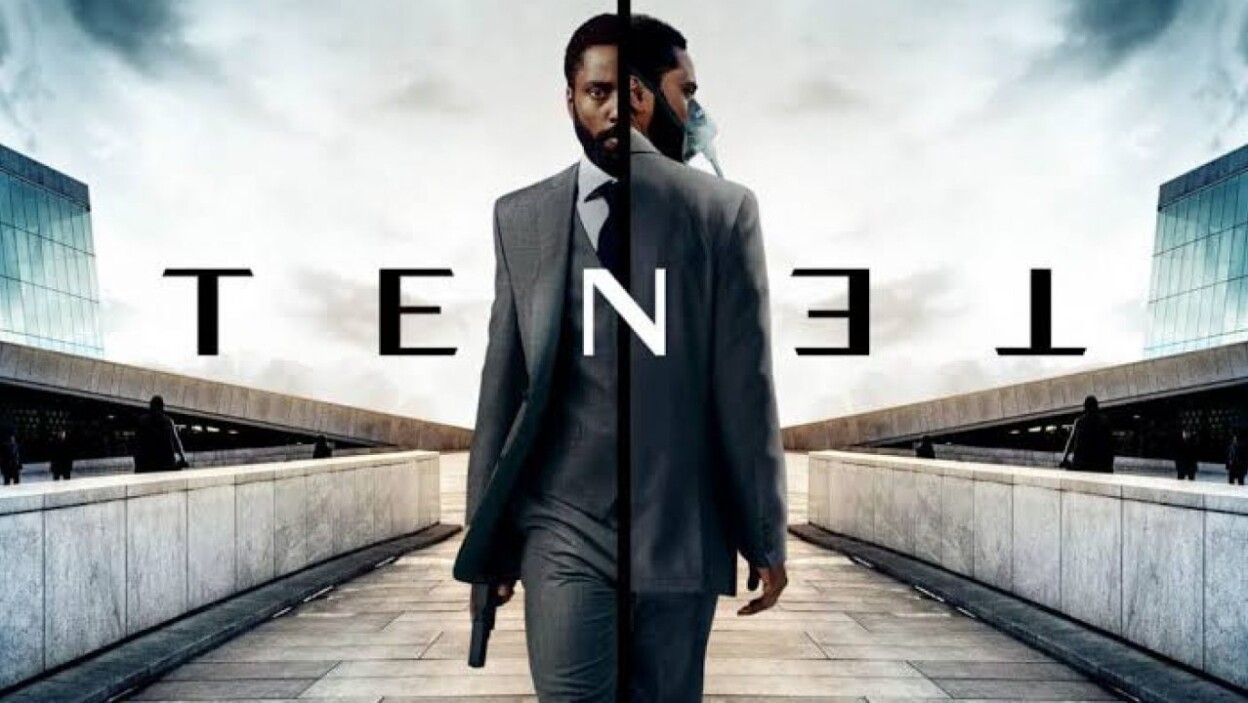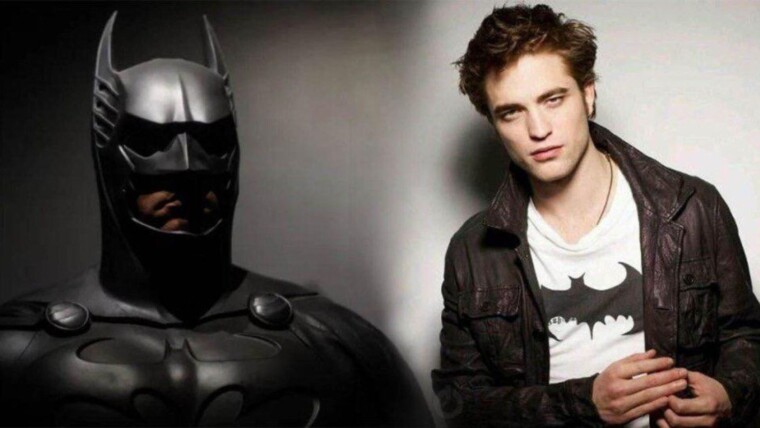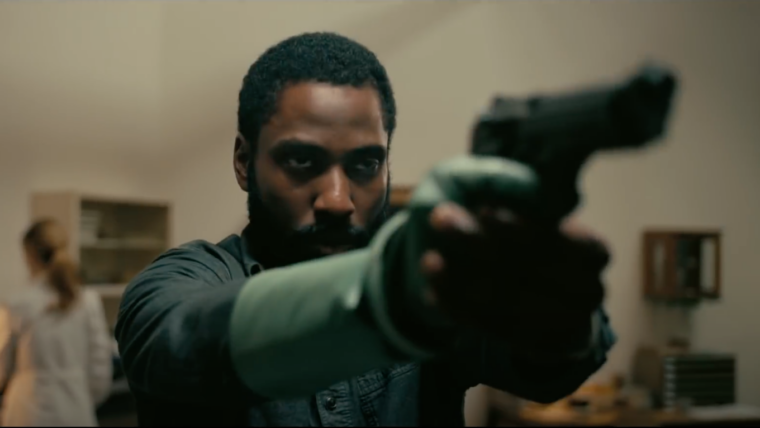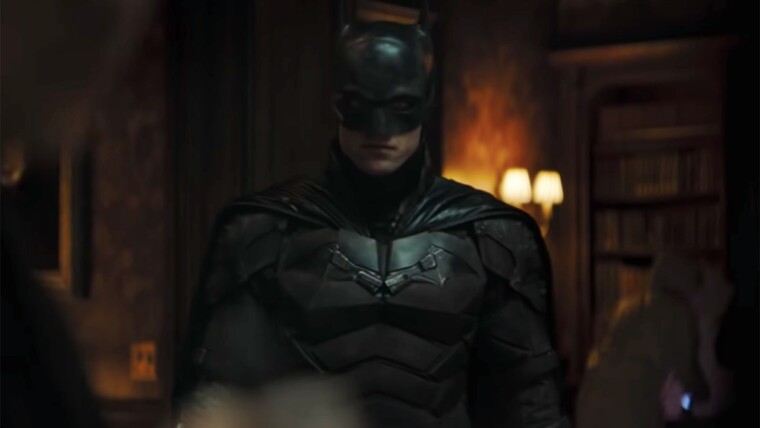Few things are as intriguing, captivating and even at times frustrating as a Christopher Nolan film. Just when you think when you have a handle on where things are going, the man throws you for a loop. When you think he’ll zig, he zags in the most mindbending way possible. Over the years, the man has created a name for himself with thoughtful and brilliant films like Memento, The Prestige, Inception and Interstellar. Films that make you question the nature of existence, time, reality and self. Films that make leave you in awe and wonder, if not with a good dose of confusion, but never convolution. Christopher Nolan is a mindf**ker and a damn good one at that, so when I first saw the trailer for Nolan’s Tenet, I knew I was in for yet another intellectual one-night-stand.
After multiple viewings, I had a theory that the film dealt with some form of time-travel or chronological manipulation. I mean Nolan, in the past, has played with the concept of time in films like Memento, Inception and most recently Interstellar. There were scenes in the trailer that looked like they were playing out in reverse. Multiple clues were found relating to time and chronology were found in the trailer. It’s about time-travel or manipulation, case closed, right? According to Tenet actor Robert Pattinson, it isn’t about time-travel at all. A statement that does very little to narrow things down in an infinite sea of possibilities. Which begs the question, just what the hell is Tenet about?!
The Afterlife Theory
Let’s kick things off with a rather recent theory in light of Robert Pattinson’s interview. In that same interview with GQ, Pattinson mentions that his character is heavily inspired by the late Christopher Hitchens. Hitchens is a renowned advocate of the modern New Atheist movement, which includes famous thinkers such as Richard Dawkins and Sam Harris. Pattinson states that he spent a copious amount of time watching debates involving Hitchens, in an attempt to do his best impersonation of the man. The evangelical atheist held strong views against organized religion, the idea of God and the belief in an afterlife. So why exactly should we be concerned about Hitchens’ connection to Tenet?
 Namely due to the fact that the language in Tenet‘s trailer revolves heavily around life and death. At the 25-second mark of the trailer, we see John David Washington’s character, whom we’ll simply call the Agent, die. The scene shows a man forcing a capsule into the Agent’s mouth, causing his to foam and eventually pass out. This is interesting because the manner in which this scene plays out is edited to look like it happened in reverse. In the background, we hear the voiceover of a man praising the Agent’s resolve saying “You chose to die instead of giving up your colleagues.” The Agent apparently passes a test and awakes in a bed to be greeted by a man wearing a suit telling him “Welcome to the afterlife.”
Namely due to the fact that the language in Tenet‘s trailer revolves heavily around life and death. At the 25-second mark of the trailer, we see John David Washington’s character, whom we’ll simply call the Agent, die. The scene shows a man forcing a capsule into the Agent’s mouth, causing his to foam and eventually pass out. This is interesting because the manner in which this scene plays out is edited to look like it happened in reverse. In the background, we hear the voiceover of a man praising the Agent’s resolve saying “You chose to die instead of giving up your colleagues.” The Agent apparently passes a test and awakes in a bed to be greeted by a man wearing a suit telling him “Welcome to the afterlife.”
That small scene in the trailer can be interpreted as the Agent’s death and resurrection, perhaps in a far more literal sense of the word. The rest of the trailer sees the Agent working with Robert Pattinson’s character, whom we’ll simply call the Partner. Together, the two of them will embark on a mission to prevent “World War III”, caused by something far worse than nuclear holocaust. Throughout the trailer, we see the Agent being aware and reacting to events before they take place, while the Partner seems unphased. The final scene in the trailer has him explaining to the Partner that the aftermath they are seeing is of an incident that “hasn’t happened yet”.
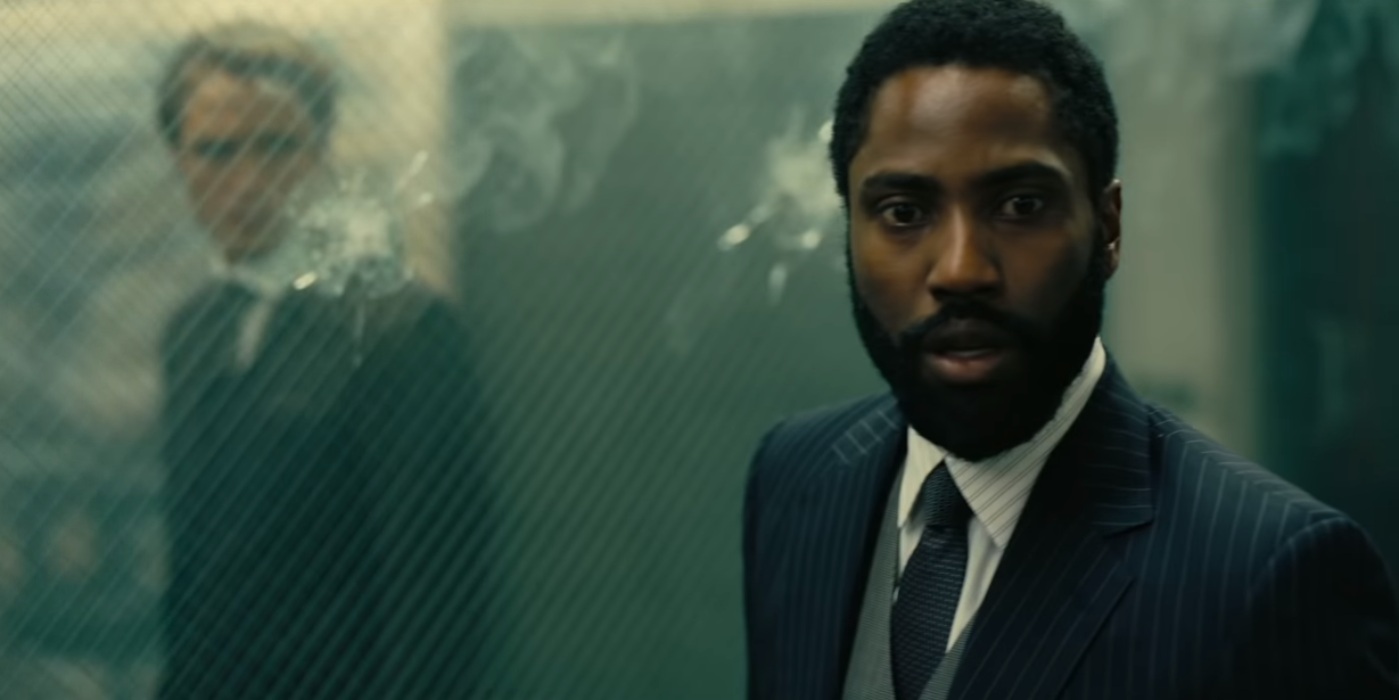 This theory suggests that perhaps Washington’s Agent is part of a special taskforce that utilizes people with prophetic abilities. Think Johnny Smith from Stephen King’s The Dead Zone if he was a secret agent. Perhaps the Agent has gained the ability to have premonitions of death from his own death and resurrection, he is in touch with both the present life and the afterlife. Hence, the phrase “Welcome to the afterlife.” Pattinson’s Partner could then be a sort of anchor to keep the Agent grounded in the present as he deals with future events. A scientific, naturalist Yin to the Agent’s supernatural, clairvoyant Yang! I mean, who better to stop a massive loss of human life in a potential World War III than someone with the ability to foresee future deaths. I’ll admit this theory sounds a little spooky and otherworldly. Then again, Nolan has been known to dabble with metaphysical concepts in films like The Prestige and Interstellar.
This theory suggests that perhaps Washington’s Agent is part of a special taskforce that utilizes people with prophetic abilities. Think Johnny Smith from Stephen King’s The Dead Zone if he was a secret agent. Perhaps the Agent has gained the ability to have premonitions of death from his own death and resurrection, he is in touch with both the present life and the afterlife. Hence, the phrase “Welcome to the afterlife.” Pattinson’s Partner could then be a sort of anchor to keep the Agent grounded in the present as he deals with future events. A scientific, naturalist Yin to the Agent’s supernatural, clairvoyant Yang! I mean, who better to stop a massive loss of human life in a potential World War III than someone with the ability to foresee future deaths. I’ll admit this theory sounds a little spooky and otherworldly. Then again, Nolan has been known to dabble with metaphysical concepts in films like The Prestige and Interstellar.
The Pharmaceutical Precognition Theory
There is an alternate theory to the Afterlife one that has more to do with drugs than it does with the divine. Remember that scene in which the Agent was forced to ingest a pill by a scruffy looking man, we’ll call him the Adversary. What if that pill wasn’t meant to kill him? What if the pill was the reason he started to experience time in a non-linear fashion? The entry point into a more symbolic “afterlife” with him seeing the world in a whole new light.
 What’s interesting is that throughout the trailer, we see the characters being hooked up to inhaler masks. At the 1-minute mark of the trailer, we see a man who looks like the Adversary wearing an inhaler mask in his car. 27 seconds after that scene we see the Agent wearing a similar-looking inhaler mask as we hear a woman’s voice saying “You have to start looking at the world in a new way”. This auditory and visual sequence strongly implies that the imagery of the Agent wearing the mask and the woman’s words are connected. Perhaps the inhaler mask, or rather what’s being inhaled, is a way in which the Agent can perceive reality and time in a new light.
What’s interesting is that throughout the trailer, we see the characters being hooked up to inhaler masks. At the 1-minute mark of the trailer, we see a man who looks like the Adversary wearing an inhaler mask in his car. 27 seconds after that scene we see the Agent wearing a similar-looking inhaler mask as we hear a woman’s voice saying “You have to start looking at the world in a new way”. This auditory and visual sequence strongly implies that the imagery of the Agent wearing the mask and the woman’s words are connected. Perhaps the inhaler mask, or rather what’s being inhaled, is a way in which the Agent can perceive reality and time in a new light.
Right, so what exactly could this substance be? Research has shown psychedelic drugs like LSD, ketamine and psilocybin can alter one’s state of consciousness and awareness. One of the side effects described by participants who have taken psychoactive substances was “distortions in time”. Nolan is no stranger to psychoanalytical themes and how the mind perceives time in a different way. He first displayed an interest in these themes in 2000’s Memento before further developing them in 2010’s Inception. Tenet clearly deals with ideas relating to time and chronology, the trailer even ends with the tagline “Time Runs Out”. Interestingly enough, all three of these films are spaced out neatly across a decade each, but I digress.
Based on the aforementioned instances in the trailer, there is a strong possibility that the inhaler mask and its potentially psychoactive contents are the triggers behind these scenes breaking chronological order. Furthermore, there has also been an image online showing Washington’s Agent wearing an inhaler mask in a car. Near the end of the trailer, we see a car chase and crash happening in reverse involving the Agent and the Partner. Both of them are present in the car at the same time but only the Agent is reacting in shock to the events around him. It’s wholly possible that this whole non-linear car chase sequence is merely the way the Agent perceives the chase after inhaling the psychoactive gas in a previous scene.
 My best explanation is that the inhalant being used is a psychoactive gas that unlocks the potential of the human mind, allowing it precognitive abilities. A heightened state of awareness that enables the user to either look into the future or accurately predict or recreate future and past events. This is all speculation of course. One thing is certain though, this inhaler mask seems to be a recurring prop in the film. Heck, it’s even on the marketing material with one of the posters having Washington wearing an inhaler mask. Based on the frequent visual clues and connections, I believe the Pharmaceutical Precognition theory (catchy, isn’t it?) to be the best one so far. There is one more theory to explore, though, and it’s pretty trippy.
My best explanation is that the inhalant being used is a psychoactive gas that unlocks the potential of the human mind, allowing it precognitive abilities. A heightened state of awareness that enables the user to either look into the future or accurately predict or recreate future and past events. This is all speculation of course. One thing is certain though, this inhaler mask seems to be a recurring prop in the film. Heck, it’s even on the marketing material with one of the posters having Washington wearing an inhaler mask. Based on the frequent visual clues and connections, I believe the Pharmaceutical Precognition theory (catchy, isn’t it?) to be the best one so far. There is one more theory to explore, though, and it’s pretty trippy.
Not Time Travel…Time Manipulation
It’s quite possible that Robert Pattinson’s statement about time-travel to be a matter of semantics. Time-travel in the most orthodox sense of the word is moving from one point in space-time to another. It means that the traveller has gone away from their original present moment into a past or future point in time and space. So by the strictest sense of the word, Tenet is not about time-travel. That being said, if someone was to perhaps speed up, slow-down or reverse time from their present point without ever leaving their timeline, this would not technically be time-travel. It would instead be chronological manipulation. Yes, I am aware that this sounds a little pedantic but there is some credence to this.
 The first two theories have managed to tackle most of the major questions revolving around the trailer, except for one little snag. Look at the waves and the ships at the 1-minute-12-second-mark of the trailer. They’re moving backwards in time but you’ll notice Washington’s Agent doing pull-ups in normal forward time. The framing of the scene in the trailer shows that the ships and turbine blades are moving in reverse outside of the Agent’s perspective. There’s no way he could be looking at the ships behind him moving backwards, seeing that it’s out of his peripheral. This would imply that the Agent isn’t merely seeing time in a new way nor looking into the future as mentioned in the Afterlife Theory. This is all happening for real!
The first two theories have managed to tackle most of the major questions revolving around the trailer, except for one little snag. Look at the waves and the ships at the 1-minute-12-second-mark of the trailer. They’re moving backwards in time but you’ll notice Washington’s Agent doing pull-ups in normal forward time. The framing of the scene in the trailer shows that the ships and turbine blades are moving in reverse outside of the Agent’s perspective. There’s no way he could be looking at the ships behind him moving backwards, seeing that it’s out of his peripheral. This would imply that the Agent isn’t merely seeing time in a new way nor looking into the future as mentioned in the Afterlife Theory. This is all happening for real!
One possible explanation for this could be that the Agent and his organization has managed to master localized time manipulation. Perhaps, they found a way in which they could make time move in reverse in a specific instance and location while they move forward. While everyone’s walking backwards in time, you’re running ahead. That would adequately answer the Agent’s bewildered reaction in real-time to events playing out in reverse. However, this theory doesn’t quite explain the reason behind the gas masks and there are also moments in which the Agent himself is subjected to time-reversal, namely the grappling scene at the start of the trailer.
As of now, I personally believe the Pharmaceutical Precognition theory to be the most valid one based on the trailer. It answers the most questions and sounds the most plausible. In less than two months, Tenet is set to be released in theatres. Maybe then, we’ll finally have the answers to all our burning questions…after watching it four times. So what did you think about the Tenet trailer? Were there any clues we missed out? Be sure to tell us your theories about Christopher Nolan’s Tenet in the comments below!

